Track Smarter. Trade Better.
Turn actionable insights into smarter decisions
Withdraw crypto stress-free
Optimize your crypto taxes before year-end
If you’re wondering how to buy ETH anonymously, there are a few methods you can try. However, each comes with trade-offs in convenience, cost, and privacy.
Crypto-related crime is on the rise, and in response, so have global surveillance and more stringent know-your-customer (KYC) requirements. For example, the FBI’s 2024 IC3 Report reported $9.3B in crypto-related fraud, up 66% from the previous year.
This is why most major crypto exchanges now require some kind of ID verification, which leaves a permanent digital trail that government and law enforcement agencies can trace back to your identity. If you value your privacy, this isn’t ideal.
This guide will show you the safest and most reliable methods to buy ETH privately, from no-KYC platforms and peer-to-peer (P2P) marketplaces to prepaid cards and ATMs. We’ll also discuss risks, best practices, and legal considerations.
Where to Buy Ethereum Anonymously? We Found the Safest Method in 2025
Before we take a more detailed look at where you can buy ETH anonymously, here’s a quick breakdown of the four main options.
<figure class="block-table"><table><tr><th>Method</th><th>Pros</th><th>Cons</th><th>Best For</th></tr><tr><td>No-KYC exchanges</td><td>Easily accessible, faster transactions, lower fees than P2P</td><td>Purchase limits, less secure than self-custody</td><td>Moderate amount of safety with decent anonymity</td></tr><tr><td>P2P platforms</td><td>Maximum privacy (if using cash), global accessibility</td><td>Increased risk of disputes and scams, variable pricing, lack of a central authority</td><td>High volumes and cross-border trading</td></tr><tr><td>Prepaid cards</td><td>Widely available, easy to control spending, no bank account link</td><td>Higher fees, lower purchase limits, card data still linked to purchase</td><td>Smaller, one-off purchases</td></tr><tr><td>Ethereum ATMs</td><td>Fast for small transactions, no bank account needed</td><td>Very high fees, strict purchase limits, may require partial ID for higher amounts</td><td>Quick, small buys</td></tr></table></figure>
Non-custodial, no-KYC apps with an integrated on-ramp (like Best Wallet) are generally considered a safer option because they allow you to store your ETH securely without requiring a personal ID.
They also give you full control of your private keys and remove the risk of centralized hacks or forced account freezes often associated with exchanges.
Note, though, that fiat on-ramp partners can set their own KYC requirements based on the country and amount, so ‘no-KYC’ is not always guaranteed.
Can You Actually Buy ETH With No KYC?
It’s possible to buy ETH without completing full KYC verification, but only up to a point. Governments are continuously tightening anti-money laundering (AML) rules, forcing most exchanges to collect personal data.
What KYC Means and Why It’s Required
KYC is the process of verifying your identity through documents such as an ID, proof of address, or a selfie. It’s mandated by global regulations to prevent fraud, money laundering, and terrorist financing.
The latest FBI Crime Compliant Center’s report shows that crypto-related losses reached $9.3B, a 66% increase from the previous year, which makes KYC more important than ever.
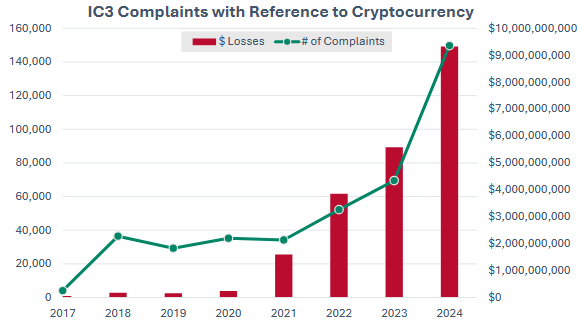
Figures like these highlight the necessity for these checks and stricter controls. However, once you’ve submitted these documents, your identity is tied to all your transactions on that platform.
Is ETH Really Anonymous?
Ethereum isn’t anonymous; it’s pseudonymous. Every transaction and wallet balance is permanently recorded on the public ledger. Avoiding KYC means your name isn’t on the exchange’s database, but it doesn’t make you invisible.
You need a wallet to buy and hold ETH. When you transact, your wallet address becomes the public pointer to every on-chain action linked to it.
If that address is ever linked to your real identity (such as an exchange withdrawal, merchant payout, or public post), investigators will be able to discover four things:
- How much ETH it holds.
- When it received the funds.
- Who sent the funds.
- Where it sends funds to.
It is the inherent nature of the blockchain network that makes true anonymity difficult to achieve.
You can think of anonymity in crypto as a sliding scale:
- Basic privacy: While you don’t share your ID when using a no-KYC exchange (for example), your wallet address is still visible on-chain and linked to a payment or IP source.
- Pseudonimity: You transact using a new wallet not obviously tied to your real-world identity. Your public network address acts like a digital alias.
- Enhanced privacy: Using privacy-enhancing tools like mixers or tumblers (like Bitmixer and Blender), which blend transactions to obscure their origin. However, this is complex and can come with high regulatory risks.
The most private fiat-to-crypto on-ramps are cash (via peer-to-peer platforms and Ethereum ATMs) and prepaid cards because they avoid linking the purchase to bank rails and identity checks. However, they come with limits and safety trade-offs.
Legal and Tax Considerations
Even if you buy ETH anonymously, you’re still responsible for tax reporting and legal compliance in most jurisdictions. And these tax rates can vary significantly.
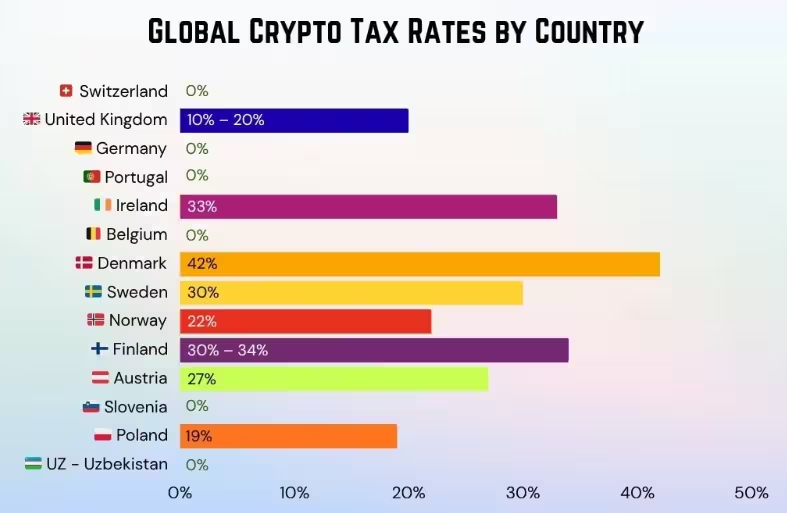
For example, in the US, the IRS requires you to answer a digital assets question on your tax return and report gains or other dispositions of crypto assets. Brokers must now issue Form 1099-DA for certain transactions that occurred from 1 January 2025.
In the EU, MiCA sets a unified legal framework for crypto-asset service providers, including licensing, disclosure, and AML transparency obligations.
In the UK, the HMRC requires you to report all gains above £3K, with tax rates of 18%--24% on capital gains.
The Cons of Buying Ethereum Anonymously
While privacy is a key benefit, buying ETH anonymously comes with significant downsides you should be aware of:
- Higher risk of fraud and scams: Dealing with unknown parties exposes you to a higher risk of crypto scams. With no KYC checks or centralized protection, there’s often no way to recover your funds if a deal goes wrong.
- Higher transaction fees: No-KYC exchanges and peer-to-peer (P2P) platforms often charge higher fees than traditional exchanges. For example, decentralized exchange Bisq’s trading fees are 0.1% for makers and 0.7% for takers when paying in Bitcoin, compared to Binance’s 0.10% for both.
- Limited purchase amounts: Many platforms that let you buy ETH without an ID have strict purchase and withdrawal limits to comply with AML laws. For example, Binance caps withdrawals at 0.06 BTC per day for unverified users. Crypto ATMs also impose daily limits, with very few allowing any transactions without at least a phone number.
- Lower liquidity: Smaller, anonymous platforms generally have fewer active users, leading to lower liquidity. This can mean slower trade execution and less favorable prices (higher slippage) for large orders.
- No recovery options: Without ID verification, you can’t prove account ownership if your wallet is compromised, you forget your password, or lose your seed phrase. Once you lose access or your ETH is gone, there’s no recourse to recover your funds.
Why Buy ETH Without ID?
Buying ETH without an ID appeals to anyone who values privacy and control over their personal data.
In a world where identity verification is standard practice for exchanges, buying anonymously lets you keep your financial activity private. Here are the core reasons to buy ETH without identification.
Protecting Your Privacy
Most crypto exchanges now require KYC verification. While these mandatory checks are required to prevent fraud, they also mean that your sensitive data is collected and stored.
By skipping KYC, you reduce the risk of your identity or wallet details being exposed in a data breach or platform hack.
Avoiding Data Tracking and Profiling
Exchanges may share or be compelled to share trading data with analytics firms or authorities. Even if you haven’t used your name, sophisticated analysis methods can use your IP addresses, device fingerprints, and transactional metadata to tie activity to you.
Buying ETH anonymously makes it harder for third parties to track your activity, build a financial profile, or monitor your wealth and spending habits.
Navigating Local Restrictions
Buying ETH anonymously is not against the law in most countries, provided you’re not doing anything illegal with it. It allows you to access decentralized finance (DeFi) or digital asset services without going through state-controlled financial rails.
However, in some countries, such as Algeria, Tunisia, Pakistan, and China, crypto trading is restricted and monitored heavily.
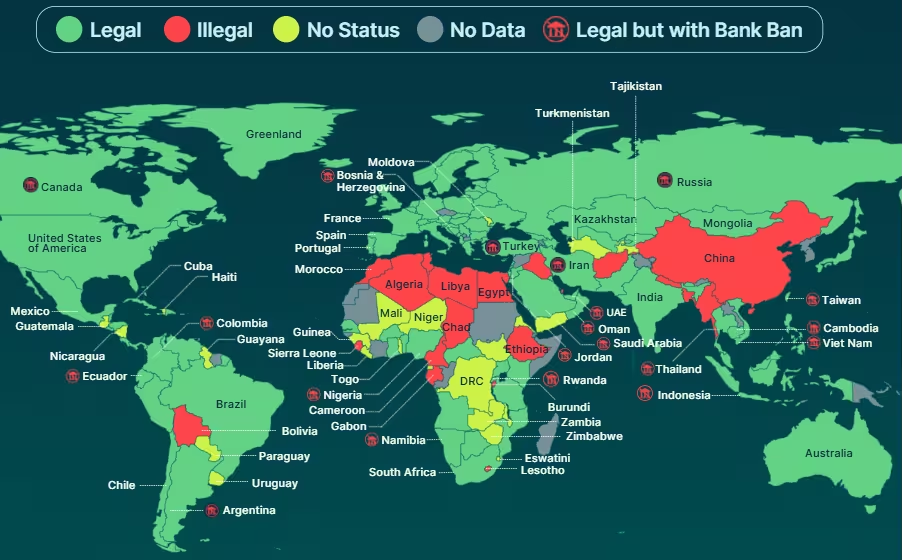
Decentralized P2P exchanges, like Bisq, offer legitimate ways to access global crypto markets without KYC as they route trades peer-to-peer and don’t centrally connect identity documents.
That said, using privacy tools designed to obscure transaction trails, such as mixers like Tornado Cash or ChipMixer and tumblers, can trigger regulatory issues in some jurisdictions because they’ve been explicitly linked to money laundering.
It’s important to know your local laws. What’s legal in one country can be illegal in another.
Enhancing Asset Control
Owning crypto is like becoming your own bank. However, true self-sovereignty only happens when your crypto holdings aren’t directly tied to your real-world identity.
Using non-custodial wallets and avoiding linking your identity to your transactions ensures only you control your funds, and no third party can freeze your funds or request verification later.
Best Places to Buy Ethereum Anonymously in 2025 Explained
There are a few different ways you can buy ETH without submitting ID, each with its pros and cons..
No-KYC Platforms
Some no-KYC platforms let you acquire ETH quickly and conveniently (within certain limits) without providing any form of government-issued identification. Other platforms that offer tiered KYC allow basic transactions (like spot trading and limited withdrawals) with just an email address.
This approach reduces your personal data exposure and offers the speed of a centralized exchange, often with lower fees than P2P marketplaces.
The main drawbacks are purchase and withdrawal limits and generally lower liquidity than major exchanges, which can make executing large orders slower and more difficult.
There’s also a higher risk of scams because these platforms often operate with less regulatory oversight, which increases the chance of sudden shutdowns or security breaches. Always research a platform’s reputation and security before using it.
Best Wallet is an example of a platform that balances privacy and usability. It combines fiat on-ramp services through its integration with Onramper, low transaction fees, and multi-chain support with a non-custodial design.
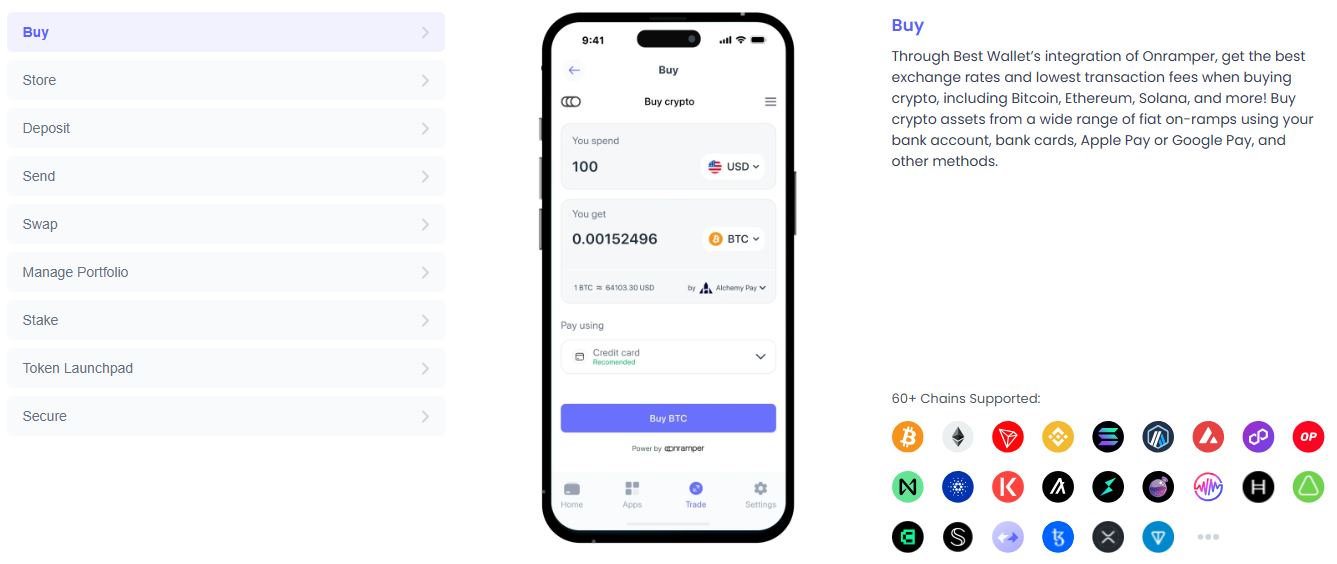
You control your private keys, reducing the need to depend on centralized services. And its security features, like decentralized account recovery and anti-fraud mechanisms, help protect your funds.
P2P Platforms
P2P platforms such as Bisq and CoinEx connect you directly to real buyers and sellers. You deal with other individuals, and transactions are often secured through an escrow system that holds the ETH until payment is confirmed..
P2P trading offers a much higher level of flexibility and privacy compared to regulated exchanges. You can choose your payment method (including cash or prepaid cards) and negotiate terms directly.
Because the platform only takes a small commission, fees can be lower than traditional exchanges, but this depends on the seller.
However, P2P is not without drawbacks. Since you’re dealing directly with other users, there’s a higher risk of scams and disputes, the resolution of which can be slow.
Liquidity can also be low depending on your location or payment method, which may delay your trades.
For maximum privacy, many users prefer decentralized P2P platforms like Bisq or Hodl Hodl as they don’t use a central escrow and use non-custodial wallets like Best Wallet to store their ETH.
Prepaid cards
You can buy prepaid cards with cash from retail stores. You load them up with fiat currency, which you can then use on no-KYC crypto exchanges or P2P platforms that accept card payments.
Because they’re not tied to your identity like a traditional credit or debit card, they’re a popular choice for privacy-conscious buyers looking to avoid linking a bank account.
The main drawback is high fees. Costs are usually higher than bank transfers or standard exchange deposits, sometimes including purchase fees, network fees, and platform commissions.
Ethereum ATMs
Crypto or Ethereum ATMs are physical kiosks, similar to bank ATMs: you insert cash, scan your wallet QR code, and the ETH is sent directly to your wallet.
While there are over 37.3K crypto ATMs worldwide, they’re generally only available in big cities. However, the growing adoption of cryptocurrencies for transactions and investments is increasing their demand.
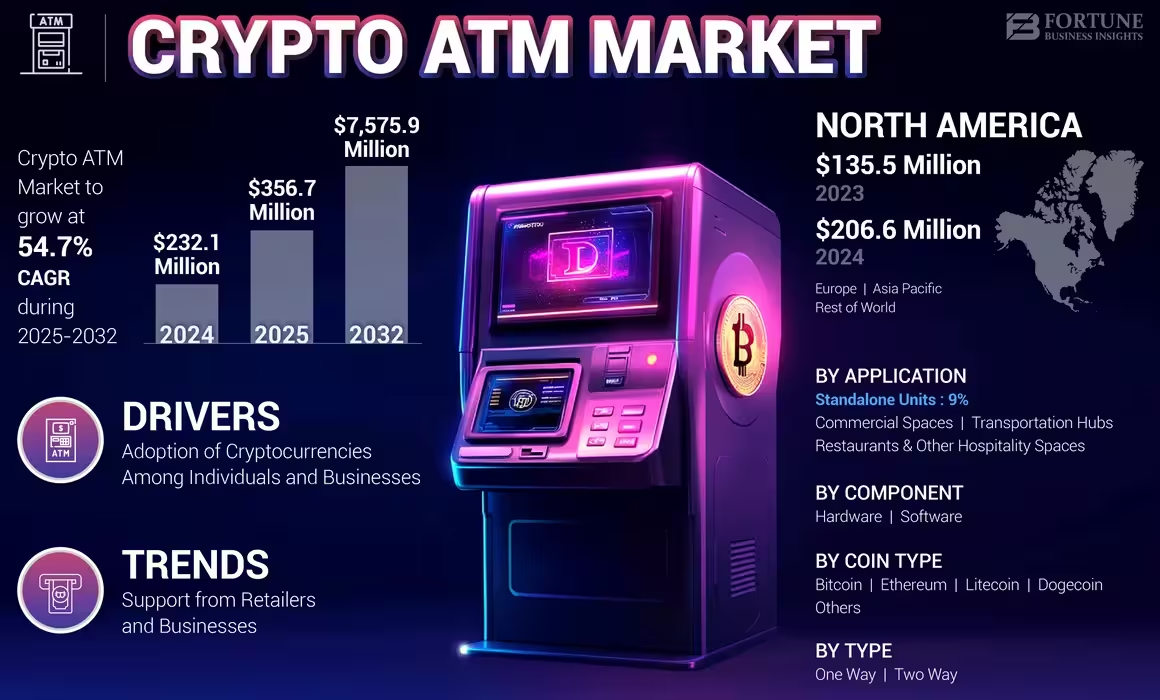
While often promoted as anonymous, most now require at least partial ID verification, such as a valid phone number, even for small transactions.
Only a handful of no-KYC ATMs remain, typically allowing limited purchases of $300 to $500. These are often operated by local or unregistered providers, which carry higher risks. Using them could expose you to scams or legal issues if the machines don’t comply with regional regulations.
Regulators are also increasingly cracking down on unregistered crypto ATMs due to their association with illicit activity. The UK’s Financial Conduct Authority (FCA), for example, has shut down all crypto ATMs after prosecuting illegal operators.
Also, a TRM Labs report found that fraud linked to crypto ATMs is nearly double that of the wider crypto industry.
If you’re looking for more privacy, ATMs are best used for small cash purchases only. Large transactions often trigger verification checks.
How to Buy ETH Anonymously - Step-by-Step Guide
Using a non-custodial wallet with an integrated on-ramp is one of the most straightforward and secure ways to buy ETH. We’ll show you how, using Best Wallet as an example.
- Install a non-custodial wallet: Go to Best Wallet’s official website and download the app. Use a strong PIN, enable biometrics, and back up your recovery phrase offline.
- Choose an anonymous method to acquire ETH: Pay with cash through a P2P platform, crypto ATM, or load a prepaid card. Send ETH to your new Best Wallet address immediately after release from escrow (for P2P) or the ATM deposit.
- Get ready to buy ETH: Navigate to the ‘Buy’ section in the app if you’re using a prepaid card. Select ETH, choose credit/debit card, and enter the amount you want to purchase.
- Use a crypto mixer or tumbler (optional): Use Bitmixer or Blender to hide the original source of your coins by mixing your ETH with that of other users. But be sure to check the regulations in your jurisdiction first.
Common Mistakes in Buying ETH Without ID
Successfully buying ETH without submitting ID is only the first step. Several common mistakes can compromise your privacy efforts.
<figure class="block-table">
<table>
<tr>
<th>Mistake</th>
<th>What to Do Instead</th>
</tr>
<tr>
<td>Using centralized exchanges afterward</td>
<td>Avoid moving your anonymous ETH to centralized exchanges that require KYC. Keep your assets within privacy-focused decentralized exchanges or non-custodial wallets.</td>
</tr>
<tr>
<td>Paying with traceable methods</td>
<td>Don’t use PayPal, debit cards, or bank transfers tied to your name. Use cash through P2P platforms or prepaid cards instead.</td>
</tr>
<tr>
<td>Reusing wallet addresses</td>
<td>Generate a new wallet address for each Ethereum transaction. This helps prevent on-chain analysts from connecting multiple transfers to one identity.</td>
</tr>
<tr>
<td>Ignoring network-level tracking</td>
<td>Always connect through a virtual private network (like NordVPN or ProtonVPN) or Tor when transacting. This hides your IP address and reduces the risk of geographic or identity leaks.</td>
</tr>
<tr>
<td>Sharing your transaction details publicly</td>
<td>Never post wallet screenshots, confirmation hashes, or addresses online. These can be used to trace funds back to you.</td>
</tr>
</table>
</figure>
Wrapping Up On How to Buy ETH Anonymously
Buying ETH without ID can be done, but each method has trade-offs in terms of privacy, cost, and risk. Your choice affects your level of anonymity and security.
For the most secure and independent option, using a non-custodial, no-KYC app like Best Wallet gives you full control of your private keys and offers the highest degree of pseudonymity. To buy the ETH initially, you can either use a P2P platform, a crypto ATM, or a prepaid card.
Always remember that no method is entirely risk-free, and the fundamental nature of the Ethereum blockchain means that it’s difficult to achieve absolute anonymity. You should always do your own research before buying any crypto anonymously, and know your local tax and legal regulations.
FAQs
1. Can you get ETH anonymously?
Yes, you can get ETH anonymously using methods like no-KYC platforms such as Best Wallet, P2P platforms (with cash), prepaid cards, and Ethereum ATMs (for small amounts). Each option comes with varying levels of privacy and convenience.
Ethereum’s blockchain is public, so while your identity may be hidden, your wallet addresses and transactions are still traceable on-chain.
2. Is there a way to buy crypto without an ID?
Yes, you can buy crypto without an ID through no-KYC exchanges (which often have strict withdrawal limits) and P2P platforms. Some crypto ATMs allow smaller cash transactions without full ID verification.
While these methods reduce the exposure of your personal data, every transaction is recorded on the blockchain. Also, avoid using payment methods (like bank accounts) that link your purchase to your identity.
3. Can you buy crypto anonymously?
You can buy crypto with some anonymity, but full privacy is challenging due to the public nature of blockchains and tightening global regulations. Using cash, non-custodial wallets, no-KYC exchanges, P2P platforms, or prepaid cards helps protect your identity.
However, avoiding traceable payment methods and reusing wallet addresses is critical to prevent your transactions from being de-anonymized and linked to you.
















